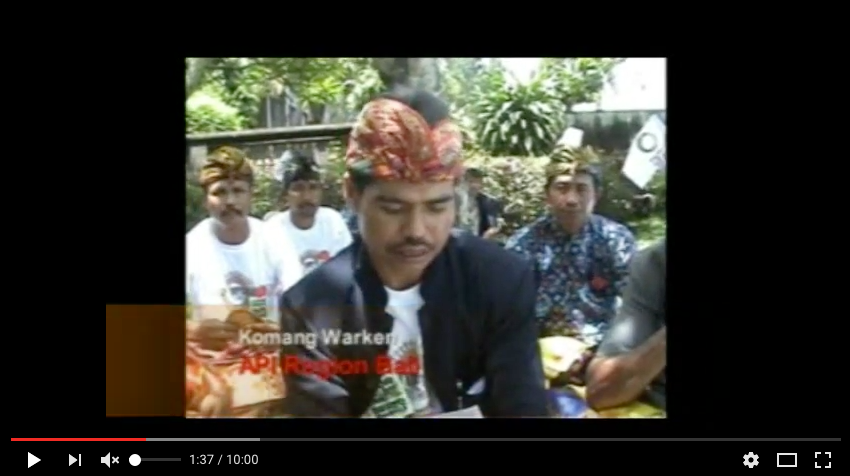Long-term global availability of food: continued abundance or new scarcity?
During the 20th century hunger has become a problem of poverty amidst plenty rather than absolute food scarcity. The question is whether this will remain so or whether the hunger of the poor will once more be exacerbated by rising food prices. In this paper we discuss biophysical conditions, social forces and non-linear interactions that may critically influence the global availability of food in the long term.
Land Reform and Rural Territories: Experiences from Brazil and South Africa
Despite programmes for rural land reform and redistribution around the world, inequitable land distribution and rural poverty remain profound in much of the rural South. Suggests a new approach to land reform and rural development. ‘Rural territorial development’ is based on and encourages shared territorial identity (distinctive productive, historical, cultural and environmental features) amongst different stakeholders and social groupings. Builds on the fact that rural people’s livelihood strategies are complex and often mostly non-agricultural in nature.
Land Policy Options for Development and Poverty Reduction
Presentation of civil society views for pro-poor land policies and laws in Zambia. Includes introduction and background; overview of the land policy options paper; context setting for policy development; policy options; implementation framework. Lays emphasis on protection of customary land, ability to convert leasehold back to customary land, need for size limits, 30% state land allocation should go to women, awareness raising on joint registration.
Global Warming, Global Poverty (Part 1)
A short video documentary of AFA's participation (through its Indonesia member Aliansi Petani Indonesia or API) in activities organized by civil society organizations (CSOs) parallel to the conferences of the UN Framework Convention on Climate Change (UNFCCC or FCCC), such as the thirteenth session of the Conference of the Parties (COP 13) and the third session of the meeting of the parties to the Kyoto Protocol (CMP 3), in Nusa Dua, Bali, Indonesia last December 3-14, 2007. API has been invited by some CSOs who organized the parallel activities to UNFCC.
Agricultural growth and investment options for poverty reduction in Malawi
"Malawi has experienced modest economic growth over the last decade and a half. However, agricultural growth has been particularly erratic, and while the incidence of poverty has declined, it still remains high. The Malawian government, within the framework of the Agricultural Development Plan (ADP), is in the process of implementing the Comprehensive Africa Agriculture Development Programme (CAADP), which provides an integrated framework of development priorities aimed at restoring agricultural growth, rural development and food security.
Agricultural growth and investment options for poverty reduction in Uganda
"Over the past two decades, Uganda has experienced strong economic growth. However, agriculture has not performed as well as the rest of the economy in recent years, and while the incidence of poverty has declined, it is still substantially higher in rural rather than urban areas.
Biofuels, poverty, and growth
"Large private investments in biofuels are presently underway in Mozambique. This paper uses an economywide model to assess the implications of these investments for growth and income distribution. Our results indicate that biofuels provide an opportunity to enhance growth and poverty reduction. Overall, the proposed biofuel investments increase Mozambique's annual economic growth by 0.6 percentage points and reduce the incidence of poverty by about six percentage points over the 12-year phase-in period. However, the benefits depend on production technology.
Mitigating rural-urban disparities in China and India
The early development strategies of both China and India were urban- and industry-focused, discounting the importance of rural development. Despite sweeping reforms in both countries, the urban bias and subsequent spatial disparities still exist today. In order to reduce poverty and increase growth, developing countries need to correct these spatial disparities through a set of policies that take advantage of the synergies and linkages between rural and urban areas.
Social Business Enterprises: new markets - new ways out of poverty?
Four billion people who live on less than two US dollars per day represent in total an enormous purchasing power. Multinational corporations such as Nestlé, Unilever, Danone and Dr. Oetker discovered these markets long ago and now seek to attract this customer group with new products and marketing strategies. It is time to take a close look at the effects of this development on poverty
From Agriculture to Nutrition: Pathways, Synergies and Outcomes
In a world of food abundance, millions of people suffer from poor nutrition. In some parts of the world, the poor have inadequate access to energy from food to meet their energy requirements. In these locations, food shortage is often a seasonal phenomenon and micronutrients are also generally lacking in the diet. Elsewhere, there is a stable supply of energy but the poor have monotonous diets lacking in essential micronutrients.
Malawi's green gold: challenges and opportunities for small and medium forest enterprises in reducing poverty
Approximately 85% of Malawi’s population live in rural areas and depend in some way on forests for their livelihoods. Recent government policies have highlighted how forest resources could do more to help reduce poverty through the development of small and medium forest enterprises (SMFEs).








